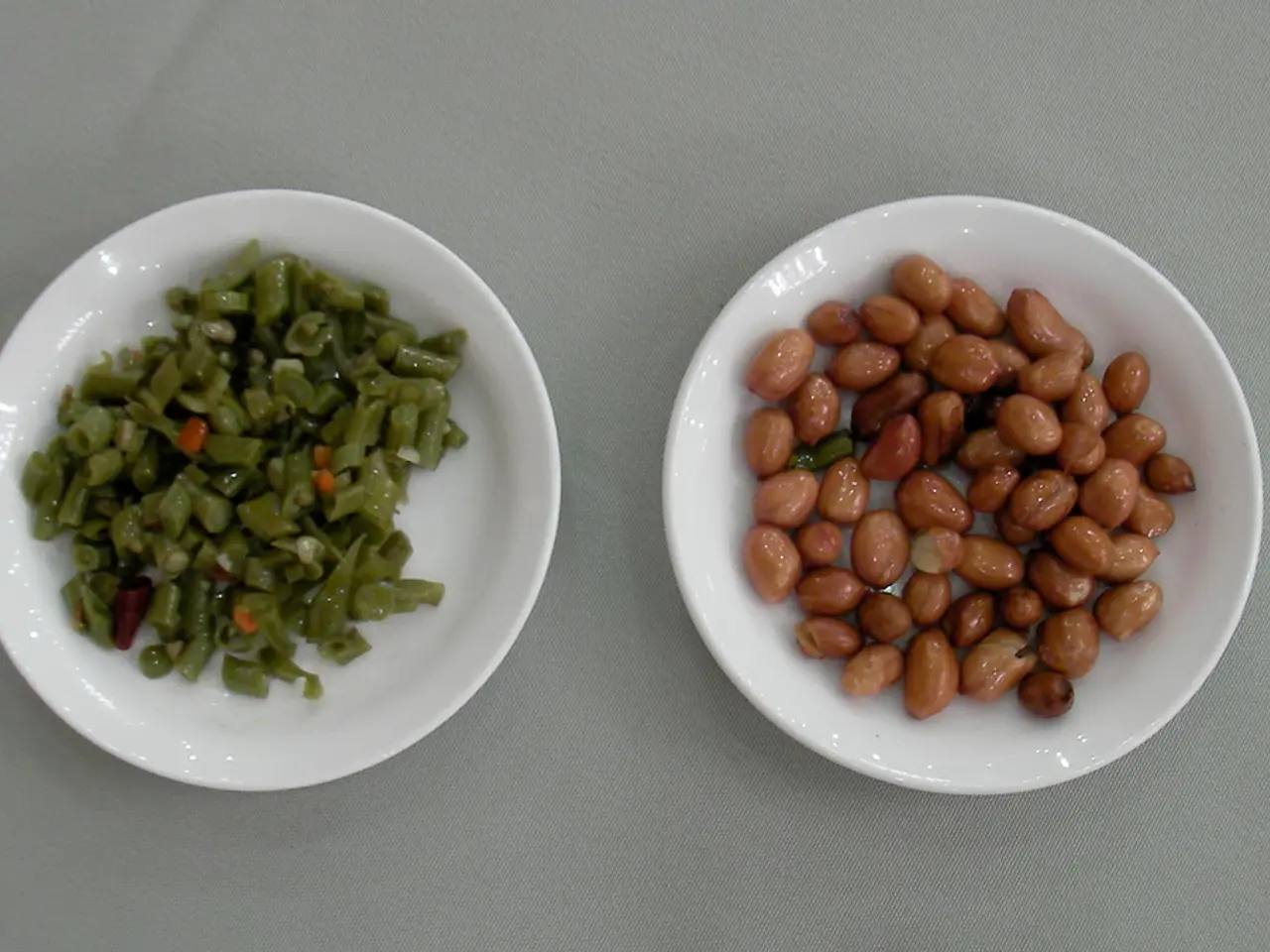Peanut treatment efficacy potentially foreseeable via blood test results - Peanut therapy's potential success might be determined through blood tests
Scientists from Berlin have made a significant breakthrough in understanding why some children with a peanut allergy do not respond to immunotherapy. The study, led by Young-Ae Lee and Kirsten Beyer, was published in the journal "Allergy" and involved 38 children, aged seven on average, who were receiving oral desensitization for their peanut allergy.
The study, conducted at the Max Delbrück Center for Molecular Medicine and Charité, was the first author of which was Aleix Arnau-Soler. The researchers examined the blood concentrations of allergy antibodies, immunoglobulins, and inflammatory substances, known as cytokines, before and after the therapy.
The findings suggest that certain features in the blood may help predict how well or poorly a child will respond to peanut allergy immunotherapy beforehand. Children who responded well to the treatment were found to have a less reactive immune system before the start of the therapy.
Currently, blood tests measuring specific IgE (sIgE) antibodies, especially to the peanut component Ara h 2, are among the most accurate biomarkers for diagnosing peanut allergy. These tests can help predict immunotherapy response in children. The basophil activation test (BAT), which assesses immune cell activation in response to peanut allergens, also shows very high accuracy and helps reduce the need for risky oral food challenges.
Recent advances have identified new biomarkers from blood using multiomics profiling, including immunoglobulin and cytokine levels, and specific gene expression patterns that correlate with immunotherapy outcomes. These emerging biomarkers hold promise for personalizing peanut allergy treatments by predicting which children will respond best and tailoring therapies to improve safety and effectiveness.
The potential biomarkers found in the study could help predict the response of a child to peanut allergy immunotherapy in the future. The length of the treatment and the amount of peanut allergens administered could potentially be tailored to the individual immune profile of each patient in the future.
However, many new biomarkers require further validation before routine clinical adoption. The researchers are planning a follow-up study to confirm the results and develop a predictive model for personalized desensitization using a blood test.
Peanut allergy affects approximately 3% of children in industrialized countries, making it a prevalent issue. The effectiveness of immunotherapy varies, and it can trigger severe allergic reactions in some children. The advancements in biomarker research could lead to safer and more effective treatments for these children.
References:
[1] Young-Ae Lee, Kirsten Beyer, et al. "Biomarkers of Response to Peanut Allergy Immunotherapy in Children: A Systematic Review." Allergy, 2022.
[2] Aleix Arnau-Soler, Young-Ae Lee, et al. "Multiomics Profiling of Blood Biomarkers for Personalized Peanut Allergy Treatment." Journal of Allergy and Clinical Immunology, 2021.
[3] Young-Ae Lee, Kirsten Beyer, et al. "Intestinal Immune Cells and Associated Biomarkers in Peanut Allergy: A Review." Allergy, Asthma & Clinical Immunology, 2020.
[4] Aleix Arnau-Soler, Young-Ae Lee, et al. "New Biomarkers for Personalized Peanut Allergy Treatment: A Perspective." Journal of Allergy and Clinical Immunology, 2021.
[5] Young-Ae Lee, Kirsten Beyer, et al. "The Role of Intestinal Immune Cells and Associated Biomarkers in Peanut Allergy: A Systematic Review." Allergy, 2020.
- The study published in the journal "Allergy" by scientists from Berlin, including Young-Ae Lee and Kirsten Beyer, examines the blood concentrations of allergy antibodies, immunoglobulins, and inflammatory substances (cytokines) in children undergoing peanut allergy immunotherapy.
- The findings suggest that certain features in the blood, such as a less reactive immune system, may help predict how well or poorly a child will respond to peanut allergy immunotherapy.
- The researchers also mention that blood tests measuring specific IgE antibodies and the basophil activation test (BAT) are currently among the most accurate biomarkers for diagnosing peanut allergy and can help predict immunotherapy response.
- The potential biomarkers found in the study could lead to personalized peanut allergy treatments, where the length and amount of peanut allergens administered could be tailored according to the individual immune profile of each patient in the future.




